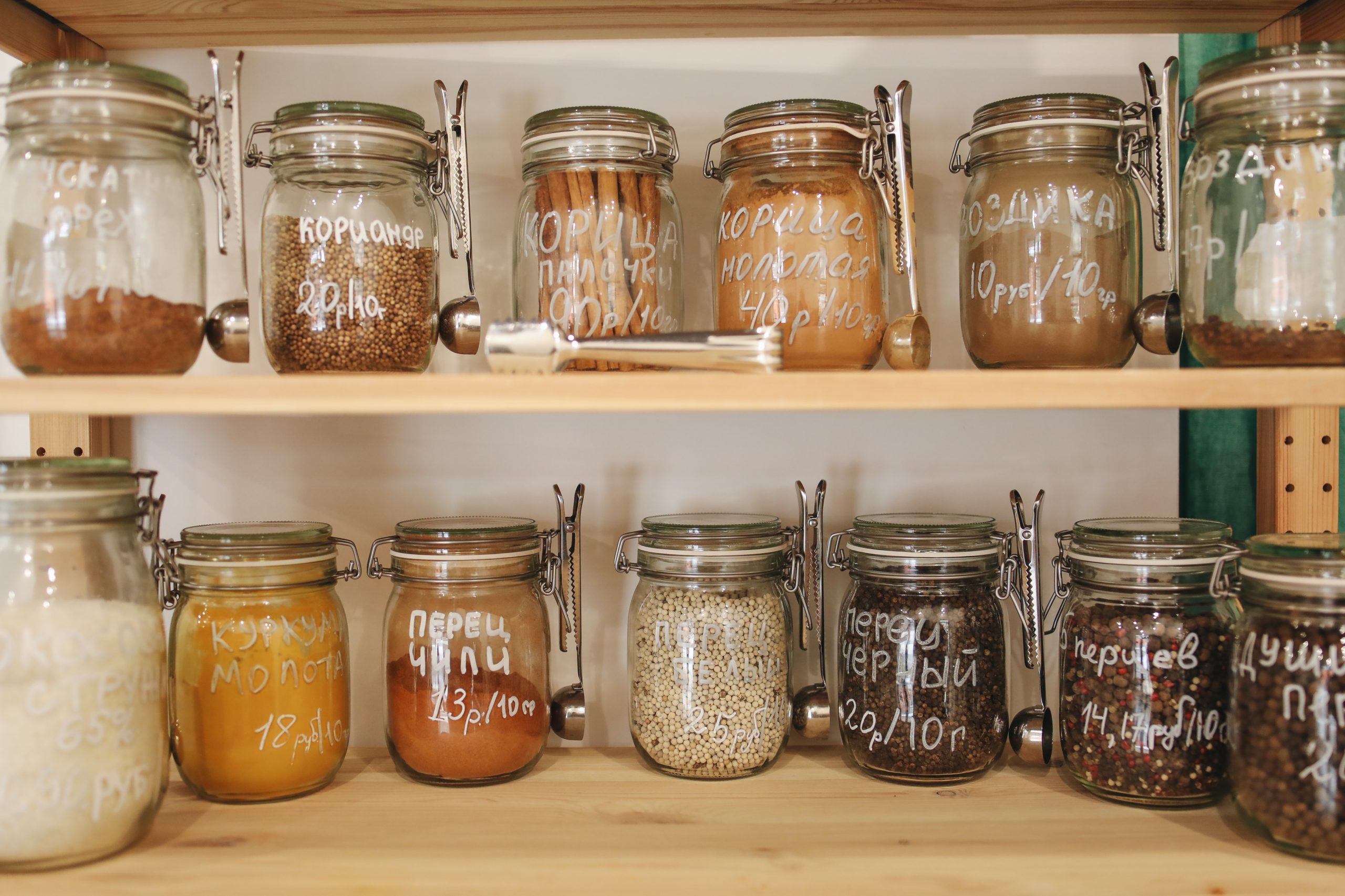How to reduce waste in the kitchen
Waste management starts in the supermarket
There are a number of shopping habits you can easily adopt to reduce your kitchen waste before even getting home from grocery shopping. Supermarkets wants to charge you for plastic or paper bags? Invest in a few non-woven, canvas, or fabric bags, and keep them in your car or rolled up in your handbag so they’re always ready for your next grocery outing. And for fresh items, why not support local agricultural producers and buy your fruit and vegetables directly from them, and avoid all those extra supermarket packaging – you don’t need vacuum-packed cucumbers or cling film-wrapped apples!

Even better, if you can find stores that allow you to bring your own jars and containers to fill up on ingredients like flour, pasta, salt, and more, you would be helping yourself avoid waste buildup on an even longer and larger scale.
Instead of single-use, refill and reuse
There are loads of items in your pantry that you could easily refill, and save yourself from rebuying bulky packaging. Whether your own jars or the product jars, you can likely easily find refill packs for items like instant coffee, dried spices, and even liquids. For items with a long shelf life, go ahead and buy in bulk and refill a smaller jar that’s easier to reach for and for daily handling.
And don’t forget, this goes for your cleaning items too. Instead of buying a new bottle of dishwashing liquid, buy a large pack and refill a pump bottle by the sink. And instead of using a new disposable towel every time you wipe down your kitchen counter, use a kitchen cloth that you can simply add to your washing machine whenever doing a load of household fabrics, and reuse for longer.
Separating your trash

Separating your trash into organic trash and recyclables is a practice that matters, as the faster you fill up your daily trash, the more often you’ll be taking out the trash. By having a bin just to collect recyclables such as glass, aluminium / tin, and paper, and a separate trash for food waste, you’ll notice that your food bin will take a longer time to fill up.
Besides locating the nearest recycling centre to where you live, another way to earn brownie points is to invest in composting. Start a composting pile in your garden to dispose of biodegradable food waste, or if you live in an apartment you could consider getting yourself a composting bin.
Use ingredients to their full potential
Many of us are throwing away perfectly edible and flavourful parts of our food before letting them achieve their full potential. Broccoli stalk? – Save it, chop it up, and boil into a homemade vegetable stock, or even blend into soups (such as with a handheld immersion blender). Citrus fruit peel can easily be candied with a food dehydrator. And even things like your cheese rinds can be saved to be added to pasta sauces for flavour.

The next time you buy animal parts, think about also saving the bones from your protein (beef, chicken, lamb, etc) or even shells from your seafood (prawns, crabs, etc) and boiling them to create a stock which you can incorporate into other dishes. And for vegetable scraps, save everything from your carrot shavings to your onion skins and keep them in a freezer bag until you have enough, boil them into a broth, and strain out the inedible items, while you also consider blending the chunky bits to get a rich soup. These flavourful liquids can be used to cook noodles, make risotto, or flavour sauces and stews.
A weekly ‘To-Cook’ list: Plan your cooking for the week based on the ingredients you have
Whether you have a big or small fridge, it is likely you can’t remember what’s sitting at the back of it. To avoid fresh items going stale or expiring for the sheer fact that you forgot you had them or didn’t have time to cook them this week, plan out your meals and FIFO (first-in, first-out) your ingredients. Get into a habit of scanning the contents of your fridge and making a list of what you have at the start of the week, and planning your meals around those ingredients. Take note also that some fresh goods last longer in cooked form than they do uncooked, so whip them up into a meal, and store the extra in reusable containers to enjoy as leftovers.
Enjoy RM6 off delivery for orders of RM30 and enjoy FREE delivery for orders of RM80 (up to 25km distance).
